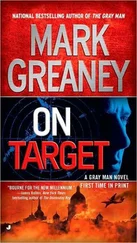Clark answered, “I’ve got an idea, I just didn’t want to burden Mary Pat with it.”
Gerry sighed. He knew, and he wasn’t sure he liked it. “Duke Sharps?”
“Yeah. But we’re not about to start snooping on American citizens on the streets of New York. Not yet, anyway. For now we probe a little in open source to see what we can find out about Sharps and his operation. Anything too overt and he’ll pick up on it. He and his employees are extremely good about their own security. Sharps Global Intelligence Partners will be a tough nut to crack.”
12
One year earlier
The offices of Korea Natural Resources Trading Corporation were in the Chung-guyok, or Central District, of Pyongyang, the nation’s capital of two and a half million. It was a large building complex with a tower in the center and several smaller buildings also associated with the mining industry nearby. Mining was the largest sector of the North Korean economy, employing thousands just here at the administration offices in Pyongyang, and a million more around the nation.
And for the past two weeks, at the top of the entire hierarchy sat Hwang Min-ho, and this continued to amaze him each and every morning.
As the son of employees of a party elite, Hwang Min-ho was given opportunities not afforded to ninety-nine percent of his nation’s children. Still, as with every citizen of North Korea, his future was ordained by the party. He was sent to study engineering at Beijing University, and then he was ordered to further his studies at Pyongyang University, where he earned the equivalent of a master’s degree in public policy. He began his career as a Korean Workers’ Party administrator in the Chagang Province. Chagang was one of the centers of the coal industry in the country, and Hwang’s engineering background helped him in his dealings with the problems faced by the mines.
It was a natural thing for him to move from the Korean Workers’ Party into the state-run mining entity, and by the age of thirty he was well ensconced in the administrative division of Korea Natural Resources Trading Corporation.
He met his first wife at a Workers’ Party meeting when they were both still teenagers, but she had died on her twenty-second birthday while giving birth to a stillborn child. In that instant Hwang went from family man to bachelor, and it affected him greatly. He focused wholly on his career for the next twenty years, until finally meeting a young nurse at a copper mine in Ryanggang Province. Min-ho and So-ra were married a year later.
His intelligence, calm demeanor, and work ethic all made him a standout, and over the next two decades he rose through the ranks to the top echelon of the organization, finding himself the director of the coal and copper mining sectors of his company by age fifty.
When the rare earth mineral deposits were discovered at Chongju in Pyongan-bukto Province, many of the highest members of the company switched their focus to working with the Chinese on this new natural resource. Hwang, by contrast, remained focused on the nation’s established mining operations, and by keeping his head down and concentrating on coal and copper, when the smoke cleared after the Chongju/China debacle, Hwang was virtually the only top-level executive in the organization left standing. He was ordered to take the reins of the organization when the director was imprisoned, and though it was the proudest moment in his life as well as the lives of his wife, children, and elderly parents, he would have much rather remained focused on coal and copper.
Nevertheless, now he was in charge, and he could no longer save himself by staying away from the rare earth mine. In fact, it had become eighty percent of his work. Since the Chinese were still partnering with North Korea at the copper mines and the zinc mines and the tungsten mine and the near-dormant gold mines, he felt certain no issue at any of those locations would get him thrown into Kangdong reeducation camp, so he knew his time was best spent concerning himself with the mining sector that, if not exploited in the next year and a half, would result in his being tossed into the back of an armored truck and rolled to Kangdong.
Hwang was father to a boy of nine and a girl of eight, and he considered himself a family man, but like all men in North Korea, his first allegiance was to the state and not his family, so this morning he rose before dawn and met his driver in front of his house in an elite neighborhood that overlooked the Taedong River. They drove silently together on the wide, empty boulevards. It was still dark, and in the capital city there were very few lighted streets, as electricity was in such short supply, but the large neon propaganda billboards on top of the tall apartment blocks and office buildings glowed dazzlingly, and bright spotlights ringed the large statues of Choi Ji-hoon that stood in the center of major intersections and traffic circles.
The drive took more than twenty minutes, and after another ten minutes walking through darkened corridors and climbing seven flights of stairs, Hwang Min-ho was hunched over a laptop on his desk with the day’s first cup of tea in his hand.
By the noon hour Hwang felt like this day would turn out like most every other—much work with little definite to show for it. Also like every other day he was getting nowhere in his attempts to advance the situation at Chongju. This morning he had suffered through a meeting with representatives of Korea General Machinery Trading Company, the state-owned manufacturer and importer of hydroelectric generators, and he had spent the better part of an hour both berating them for not fulfilling their promises from their last meeting and begging them to do a better job this time in their pledge to increase the electrical output to the mine. He’d received platitudes from the contingent, but little else.
Now he was prepping for an afternoon visit to Amroggang Development Banking Corporation a few blocks away. Hwang and his vice ministers were desperately trying to secure financing from abroad to purchase those few goods not enveloped by sanctions, and perhaps even find an overseas benefactor who would bankroll them outright. Hwang’s resources in country were limited, thanks to both the nation’s inefficiencies and the sanctions regime put upon them by the West, and he saw Amroggang Development as the thinnest and most fragile lifeline imaginable, but a lifeline nonetheless.
As he reached for the cup containing the dregs of his third tea of the day, his secretary’s slightly agitated voice squawked over the intercom.
“Director Hwang. Apologies, but there is a General Ri here to see you.”
Hwang cocked his head. He had no idea who this man was. He knew dozens of men named Ri, many of whom were military officers, but he wasn’t planning on talking to any of them today. “Does he have an appointment?” Unannounced visits among government executives were unheard of. Even at the lowest levels preparations would need to be made, and Hwang was director of the state-owned company that ran the largest industrial sector in the nation, so any meeting should have been on the agenda for days.
There was a pause, then almost a shriek from his secretary. “I am very sorry, sir, he is coming in!”
Hwang rose hurriedly as the door opened. There before him was a general in the green uniform of the Korean People’s Army, with an impressive chest full of medals. Hwang thought he remembered seeing him the week before, during his visit to Residence No. 55.
Hwang’s heart skipped a beat. He said, “Jeoneun chepodoemnikka?” Am I under arrest?
“Aniyo, dongmu.” No, comrade. “Apologies for coming unannounced.” He stepped up to Hwang’s desk and bowed. “General Ri Tae-jin of the RGB.”
Читать дальше












